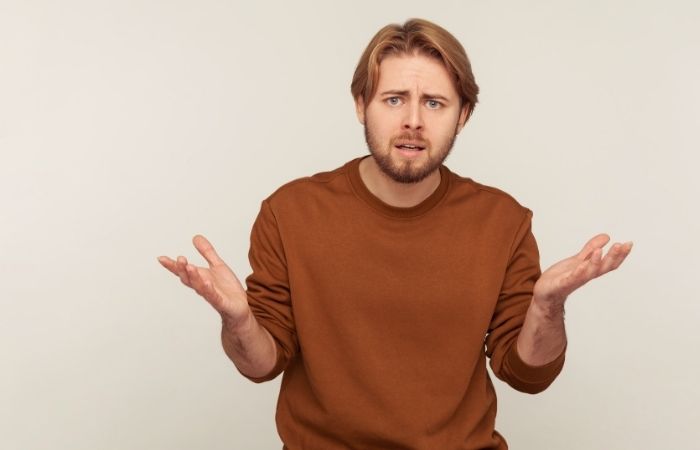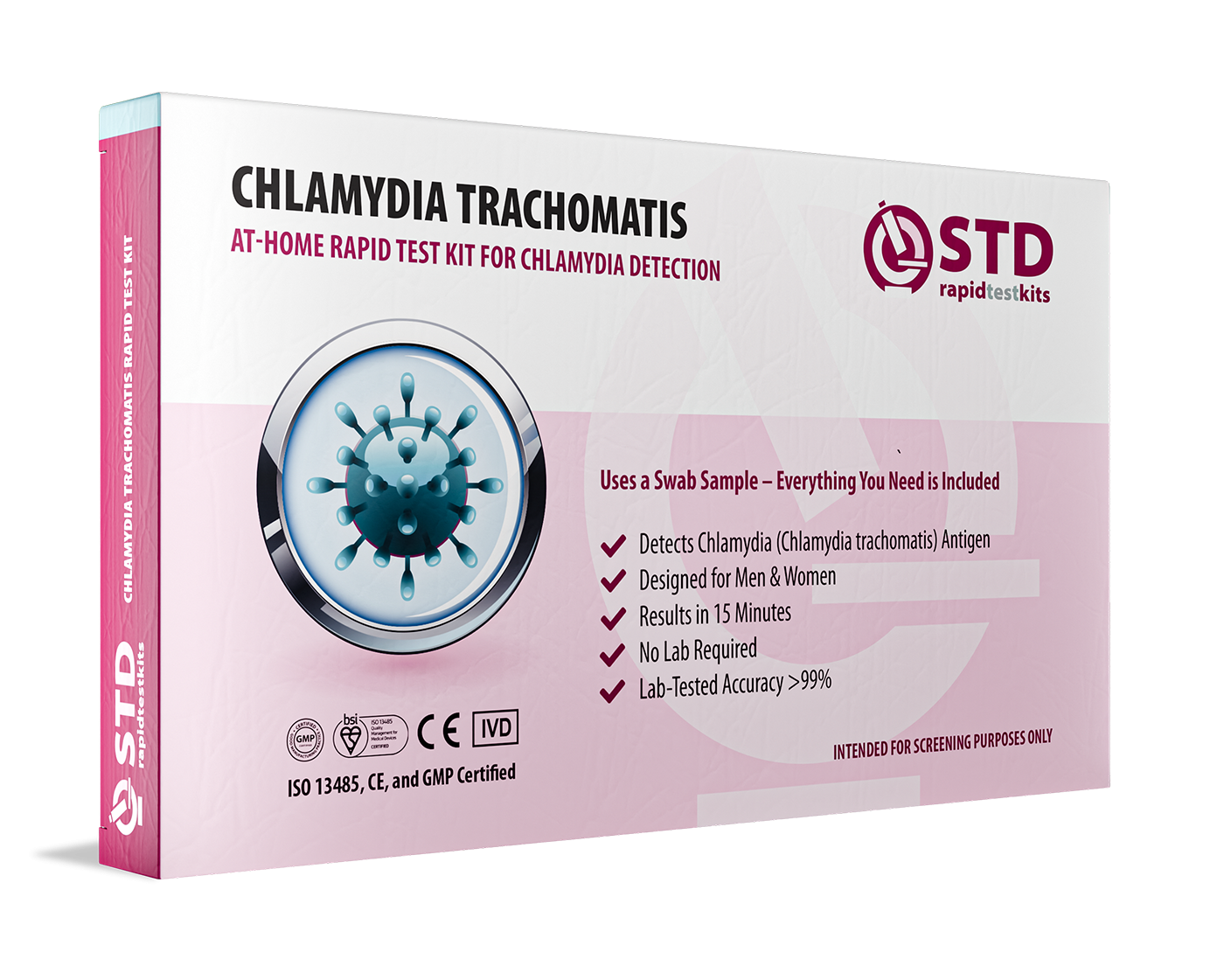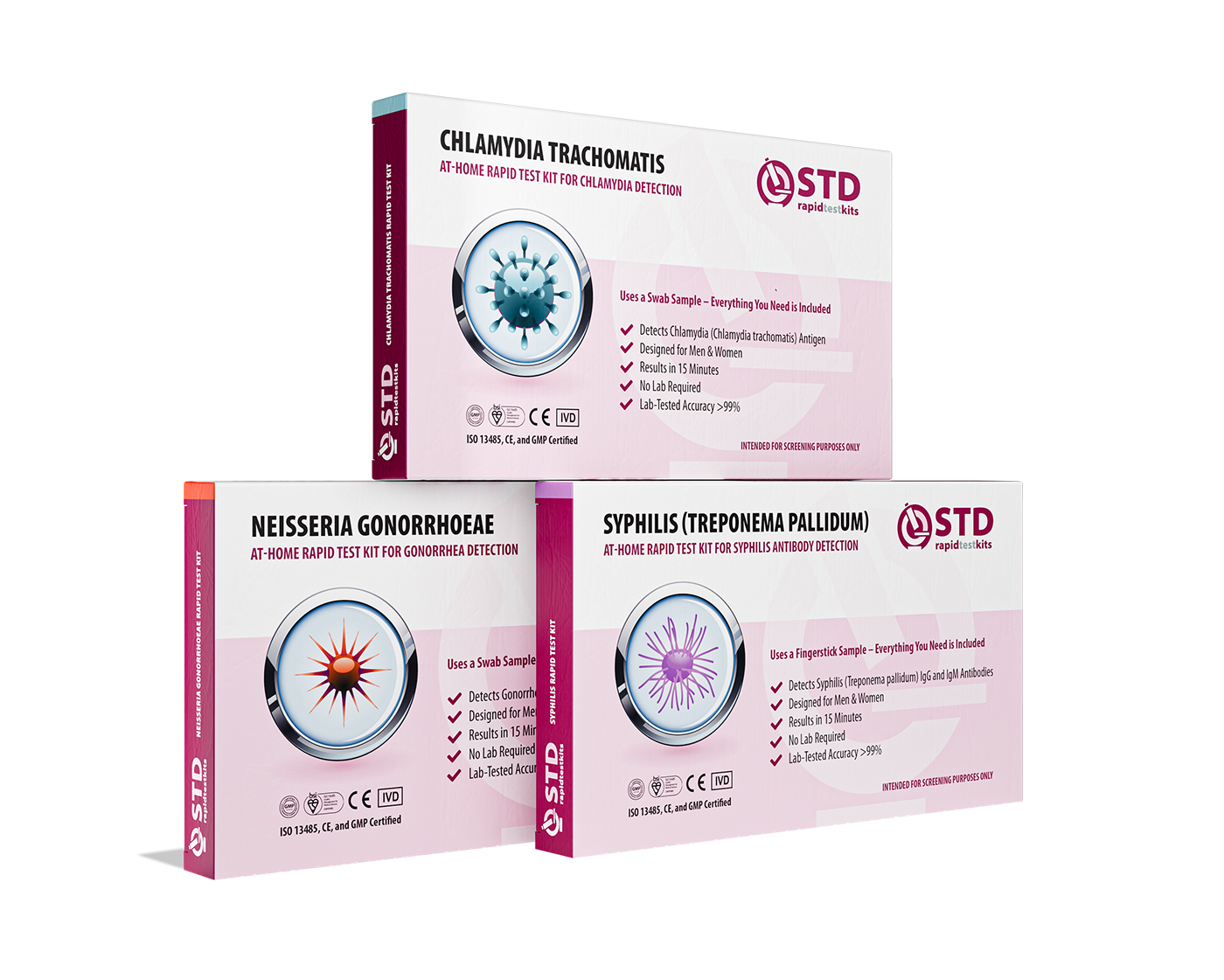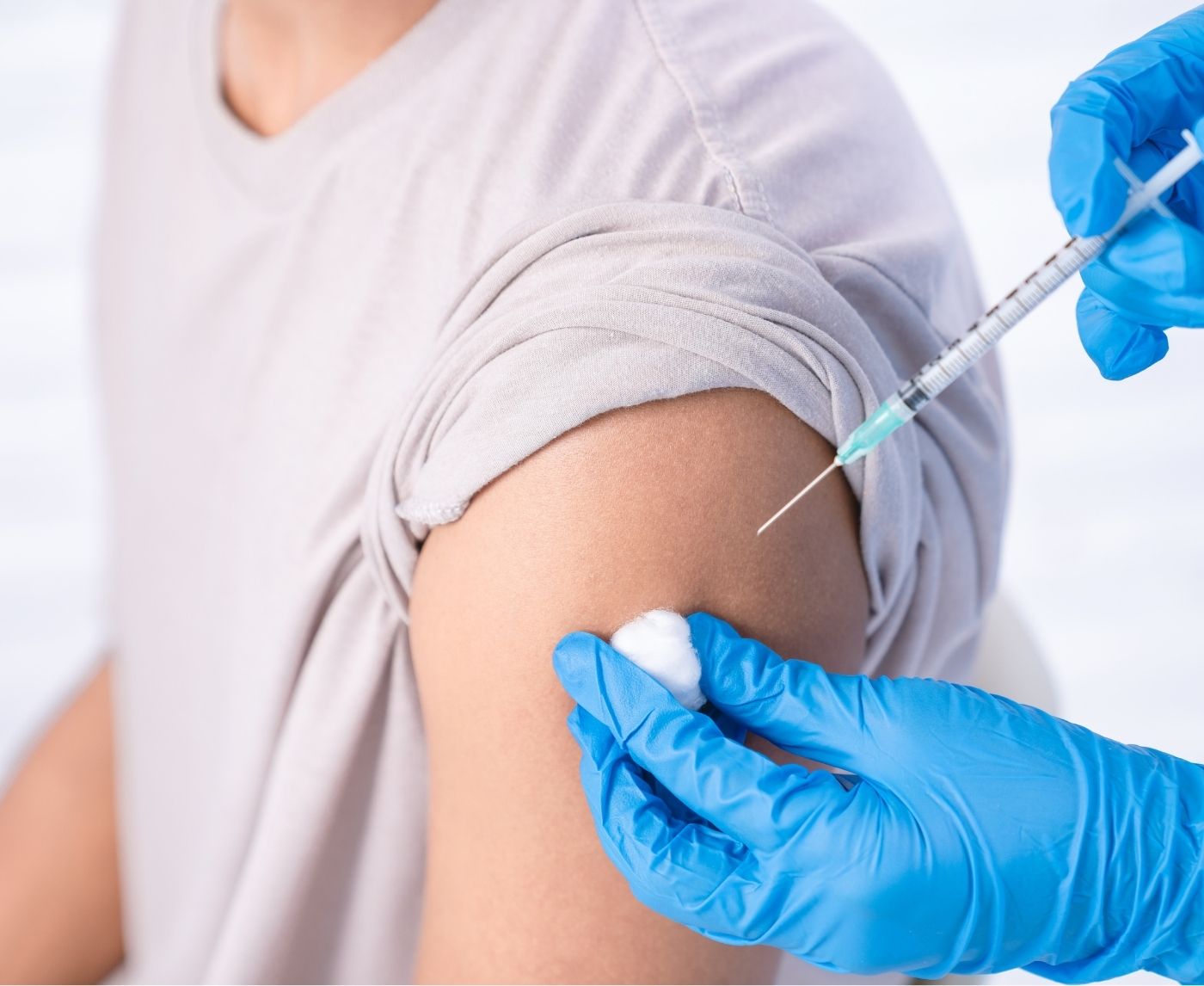Quick Answer: No, there’s no approved vaccine for chlamydia as of 2025. Clinical trials are underway, but for now, prevention relies on testing, condoms, partner care, and new tools like Doxy PEP.
This Isn’t Just a UTI, And That’s the Problem
Chlamydia is the most reported bacterial STD in the United States, and one of the most misunderstood. Part of what makes it so dangerous is also what makes it invisible. Up to 70% of people assigned female at birth and around 50% of people assigned male show no symptoms at all. That means it spreads quietly, often undetected until complications hit, like pelvic inflammatory disease, infertility, or epididymitis.
For people like Josh, there’s rarely a dramatic “oh no” moment. It’s more of a quiet slide into confusion: Is it razor burn? Is it a yeast infection? Is this normal? And once the positive result lands, the shame usually kicks in just as fast as the questions.
“I kept thinking, why didn’t anyone tell me this was so easy to miss?” Josh said.
“I assumed there was a vaccine. There’s one for HPV, right? Why not this?”
That question, why there’s still no vaccine for chlamydia in 2025, has more to do with funding, public pressure, and the biology of the bacteria than most people realize. But the end result is the same: no shot, no shield, and a lot of silence.

People are also reading: Why Long-Term Couples Still Need Regular STD Testing
Why There's Still No Chlamydia Vaccine (Even Though We Need One)
First, the science. Chlamydia trachomatis is a tricky bacterium. It’s what scientists call an “obligate intracellular pathogen,” meaning it has to live inside human cells to survive. That makes it harder to target with traditional vaccines, especially without damaging healthy cells in the process.
But there’s another reason we don’t have a shot yet, and it has nothing to do with biology. It has to do with attention. Or rather, the lack of it.
Unlike COVID, HPV, or even hepatitis, chlamydia doesn’t kill people outright. It’s often silent. Manageable. Incurable, but treatable. And because it’s so common, 1.6 million cases reported in the U.S. in 2022 alone, it often gets dismissed as “just part of being sexually active.” There’s a stigma, yes, but also a shrug. That combination has delayed vaccine development for years.
According to a 2024 peer-reviewed study published in Sexually Transmitted Infections, a major barrier to chlamydia vaccine development is the assumption that antibiotics make it “low priority.” But that thinking ignores the long-term reproductive damage, repeat infections, and mental health tolls.
The good news? That’s changing. In March 2025, biotech giant Sanofi received FDA Fast Track status for its mRNA-based chlamydia vaccine candidate. Human trials are launching now, with early data expected in late 2026. But don’t hold your breath, approval, manufacturing, and distribution could take years.
In the meantime, millions are still asking: what do I do now?
“I Thought I Was Careful.” Spoiler: So Did Everyone Else
When we think of STDs, most of us imagine some kind of reckless behavior, multiple partners, no condoms, zero boundaries. But that’s not what most chlamydia transmission looks like. It often happens in relationships that feel safe. Situationships. Long-term hookups. “We didn’t use a condom once” kind of moments. The in-between spaces.
Elise, 26, said it bluntly:
“I thought if I was only sleeping with him, it didn’t count as risky.”
She wasn’t alone. A recent NIH study found that nearly half of young adults diagnosed with chlamydia didn’t think they were at risk when they got tested. Most had no symptoms. Many assumed monogamy was mutual.
Here’s the myth-busting reality: you don’t have to be reckless to get chlamydia. You just have to be human. Trusting. Curious. Sexually active in any way, oral, vaginal, anal, sometimes even with a condom if there’s breakage or improper use. That doesn’t make you dirty. It makes you alive.
And this is where prevention gets personal. There may be no vaccine (yet), but there are tools, some old, some new, that can help you stay protected, no matter your identity or relationship structure.
Check Your STD Status in Minutes
Test at Home with RemediumChlamydia Test Kit

 For Men & Women
For Men & Women Results in Minutes
Results in Minutes No Lab Needed
No Lab Needed Private & Discreet
Private & DiscreetOrder Now $33.99 $49.00
Let’s Talk About Doxy PEP, The Morning-After Pill for STDs
You’ve heard of Plan B. But have you heard of Doxy PEP?
It’s short for doxycycline post-exposure prophylaxis, a single 200mg dose of an antibiotic taken within 72 hours of condomless sex. In 2024, the CDC officially endorsed it for certain high-risk groups: gay and bisexual men, and transgender women who’ve had a recent STI. Why? Because the data is clear, it works. A landmark study published in the New England Journal of Medicine showed it reduced chlamydia cases by 66% in these groups.
This isn’t a green light to ditch condoms, but it’s a powerful backup. Especially if you’re in a community with high STI rates, have multiple partners, or don’t always use protection. Talk to your doctor, sexual health clinic, or LGBTQ+ provider about whether it’s right for you.
And yes, researchers are still studying Doxy PEP’s effectiveness and safety for cisgender women. Until then, the standard tools still matter, and they work.
Testing Is Protection, Not Punishment
We need to stop treating STD testing like it’s a moral failing. Testing is care. Testing is self-love. Testing is how you protect not just yourself, but your partners, even if they’re casual, even if it was one time, even if it’s complicated.
You can test at a clinic. You can test at home. You can test after a scare, or as part of your routine. But the most important thing is: you test.
And if the idea of going to a clinic fills you with dread or shame? You’re not alone. That’s why at-home STD kits exist. Discreet, affordable, and often just as accurate as clinical testing, they give you control over your health without anyone else in the waiting room. Especially useful for queer folks, people in rural areas, or anyone avoiding systems that haven’t always felt safe.
Josh said he wished he’d known sooner:
“I thought testing was something you do when you mess up. Now I see it as just another part of sex, like lube or consent.”

People are also reading: At-Home STD Testing: Is It Worth It?
The Silence Around Chlamydia Is Hurting Us
If you’ve ever felt ashamed to say the word “chlamydia” out loud, you’re not alone. It’s one of those STDs people barely talk about, until they have it. Then suddenly it’s Google searches, sleepless nights, and whispered confessions to a friend (if that). The silence isn’t just personal, it’s systemic.
Despite how common it is, there’s very little public education about chlamydia outside of health class slides or clinical pamphlets. And because there’s no dramatic “chlamydia kills!” headline, it doesn’t get funding attention the way other diseases do. But let’s be clear: this infection can wreak havoc long after the symptoms (or lack of them) go away.
Untreated chlamydia can lead to infertility, ectopic pregnancy, and chronic pelvic pain. In people with testicles, it can inflame the epididymis, affect sperm, and in rare cases, cause scarring. Repeat infections are common, and each one raises the risk of long-term damage. This isn’t a “just take antibiotics and move on” situation for everyone.
And let’s talk mental health for a second. The shock. The shame. The fear of telling someone new. The spiral of “how did I miss this?” For many, the emotional impact of an STD like chlamydia lasts longer than the physical one. That’s why education, real, non-judgmental, human-centered education, matters just as much as medication.
What to Do If You Just Googled Your Way Here
Maybe you’re feeling something. Maybe your partner tested positive. Maybe your gut is just saying “check.” Whatever brought you here, pause and take a breath. You’re not dirty. You’re not broken. You’re not alone.
Here’s what to do next, no panic required:
First, test. If you have symptoms (burning, discharge, pelvic pain, spotting), don’t wait. But even if you feel totally fine, test anyway if there’s been unprotected sex or a new partner in the last few weeks. Many infections don’t show signs right away, or ever. And the only way to know is to look.
You can order a chlamydia home test kit and get results in days. Or walk into your nearest sexual health clinic and ask for a swab or urine test. It’s quick. It’s affordable. It’s worth it.
If the test is positive, breathe again. Chlamydia is curable with antibiotics, usually one dose or a short course. What’s just as important: your partner(s) need to be treated, too, even if they feel fine. This prevents you from ping-ponging the infection back and forth. Some clinics offer Expedited Partner Therapy (EPT), meaning you can deliver meds to them directly, no awkward phone call required.
And if your test is negative but you’re in a high-exposure situation? Ask your doctor about Doxy PEP. Prevention isn’t just for “after something bad.” It’s part of your toolkit.
Check Your STD Status in Minutes
Test at Home with Remedium3-in-1 STD Test Kit

 For Men & Women
For Men & Women Results in Minutes
Results in Minutes No Lab Needed
No Lab Needed Private & Discreet
Private & DiscreetOrder Now $69.00 $147.00
For all 3 tests
You Deserve Better Than Silence
Not having a vaccine for chlamydia in 2025 isn’t just a scientific issue, it’s a social one. It reflects where we’ve placed attention, whose bodies we protect, and how willing we are to have real conversations about sex, stigma, and health.
But while we wait for the pharmaceutical solution, you already have power. You can test. You can treat. You can talk. You can choose partners who care about safety the way you do. You can set your own boundaries, ask the awkward questions, and own your right to pleasure and protection without shame.
Don’t wait and wonder, get the clarity you deserve. This at-home combo test kit checks for the most common STDs discreetly and quickly.
FAQs
1. Wait, there’s really no vaccine for chlamydia?
Yep, really. Even in 2025. While scientists are working on it (and some trials look promising), nothing’s approved or widely available yet. You can't just get a shot and move on, at least not yet. But that doesn't mean you're powerless.
2. Can I have chlamydia and feel totally fine?
Unfortunately, yes. That’s the trap. Most people with chlamydia don’t notice any symptoms at all. No burning, no discharge, no red flag. That’s why routine testing is so important, because "feeling fine" isn't the same as being in the clear.
3. So how do I even know when to get tested?
Think of it like this: new partner? Get tested. Unprotected sex? Get tested. It’s been a year (or you’ve never been)? Please, get tested. It doesn’t have to be dramatic, just part of taking care of your sex life, like brushing your teeth after a hookup.
4. Does oral sex count for chlamydia risk?
Totally. It’s less common, but yes, chlamydia can live in the throat. If someone’s giving or receiving oral without a barrier, it’s possible to transmit or catch it that way. No judgment, just info.
5. Is Doxy PEP like a Plan B for STDs?
Exactly that vibe. It’s one dose of doxycycline (an antibiotic) you take within 72 hours of unprotected sex to reduce your risk of getting certain STDs, chlamydia included. Right now it’s only recommended for certain groups, but it’s a game changer if it applies to you.
6. If I test positive, what’s the damage?
Take a breath, it’s treatable. One round of antibiotics, and you’re good. But don’t ghost your past partners. They need treatment too, even if they “feel fine.” That’s how this thing keeps spreading.
7. Can I test at home or do I have to go to a clinic?
You can absolutely test at home. These kits ship discreetly, take just a few minutes, and give you results without the awkward waiting room vibes. Clinics are great too, do what makes you feel safest.
8. Will I have to tell my partner? What if I’m scared?
Yeah, telling a partner can suck. But you deserve honesty, and so do they. Many clinics will even help you notify them anonymously. And if they freak out? That says more about them than you.
9. Can I get chlamydia again after treatment?
Unfortunately, yes. Chlamydia doesn’t give you immunity. So even if you’ve had it before, you can catch it again if you're exposed. That’s why follow-up testing and partner treatment are key.
10. Do condoms actually work against this?
Absolutely. When used right (every time, all the way through), condoms are super effective at blocking chlamydia. They’re not perfect, but they seriously cut the risk, and they’re still the MVP of STI prevention.
Sources
1. WHO
2. Sanofi
3. PubMed
4. CDC










